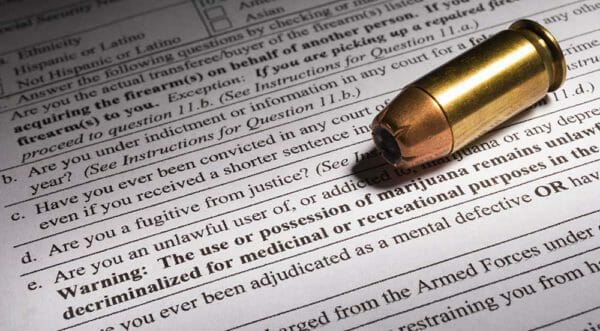
WASHINGTON, D.C. – In a case with major implications for the Second Amendment and federal drug laws, the U.S. Solicitor General appointed by President Donald Trump has asked the Supreme Court for a 30-day extension to decide whether to challenge an appeals court ruling that chips away at the federal gun ban for marijuana users.
The case, United States v. Baxter, centers on Keshon Daveon Baxter, who was caught in Des Moines, Iowa with a loaded pistol and a bag of marijuana in 2023. Federal prosecutors charged him under 18 U.S.C. § 922(g)(3), a statute that bars “unlawful users” of controlled substances from possessing firearms.
Baxter fired back with a constitutional challenge, arguing that the statute is unconstitutionally vague and violates the Second Amendment when applied to someone like him—a nonviolent individual not under the influence at the time of arrest. While the district court rejected his claims, the Eighth Circuit Court of Appeals reversed in part and ruled that there wasn’t enough evidence to determine whether the ban was constitutional as applied to Baxter’s specific circumstances.
Now the Biden-era ruling is in limbo. Trump’s Solicitor General, D. John Sauer, is weighing whether to escalate the fight to the Supreme Court. In a brief filed on April 18, 2025, Sauer said more time was needed “to assess the legal and practical impact of the court of appeals’ ruling.”
A Crumbling Gun Control Pillar?
This isn’t an isolated incident. Over the past year, multiple federal courts—including in the Fifth, Eighth, and Tenth Circuits—have raised serious doubts about the legality of banning gun ownership based solely on marijuana use. Some judges have outright called it unconstitutional, especially when there’s no proof the person was high while carrying a gun.
That’s a big deal. Millions of Americans now legally use marijuana in their states, and under current federal law, they’re stripped of their Second Amendment rights for doing so.
Groups like the Firearms Policy Coalition (FPC) are paying close attention. “Historically, Americans were only disarmed for being dangerous,” the FPC said in a statement. “There’s no historical precedent for disarming someone just because they used marijuana.”
The FPC and other pro-gun legal groups see Sauer’s extension request as a promising sign that the Trump-aligned DOJ could reverse course and abandon the broad ban on marijuana users’ gun rights altogether.
Political Tensions Simmer
The Biden administration has strongly defended the gun ban, claiming marijuana users are a public safety risk and even linking marijuana use to poor firearm storage and increased suicide risk. Biden’s DOJ has repeatedly leaned on the Supreme Court’s Rahimi decision, which upheld gun restrictions for those under domestic violence restraining orders, to justify § 922(g)(3) enforcement.
In contrast, Trump has sent mixed signals. Once during a speech at a National Rifle Association (NRA) leadership forum he floated the idea that “genetically engineered cannabis” might be linked to mass shootings, his administration’s move to appoint Sauer—and now the hesitation to push this case to the high court—signals potential daylight between the prior rhetoric and present legal strategy.
What’s Next?
If the Supreme Court ultimately takes the case and rules against the government, it could strike down or narrow the use of § 922(g)(3) nationwide—setting a landmark precedent that protects gun rights for law-abiding cannabis users.
The government now has until May 6, unless the extension is granted, to decide whether to file a petition for review. With dozens of other similar challenges making their way through the courts, what happens in Baxter could reshape the legal landscape for gun owners across the country.
Court Finds Gun Ban on Illegal Drug Users is Unconstitutional
U.S. Appellate Court Issues Case on Marijuana Use & Firearm Possession
from https://ift.tt/lFm7Ktg
via IFTTT

No comments:
Post a Comment